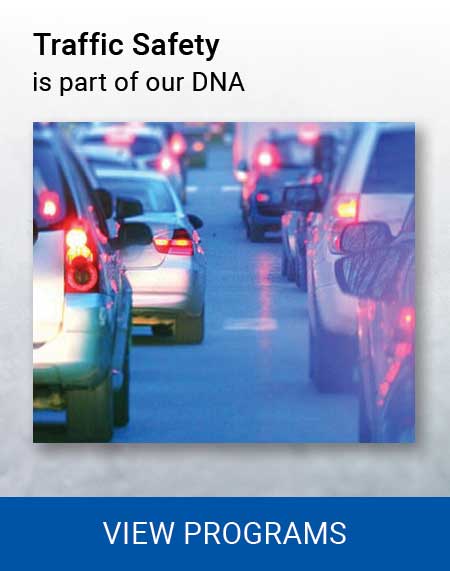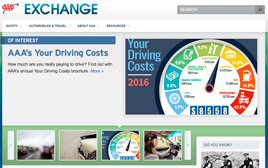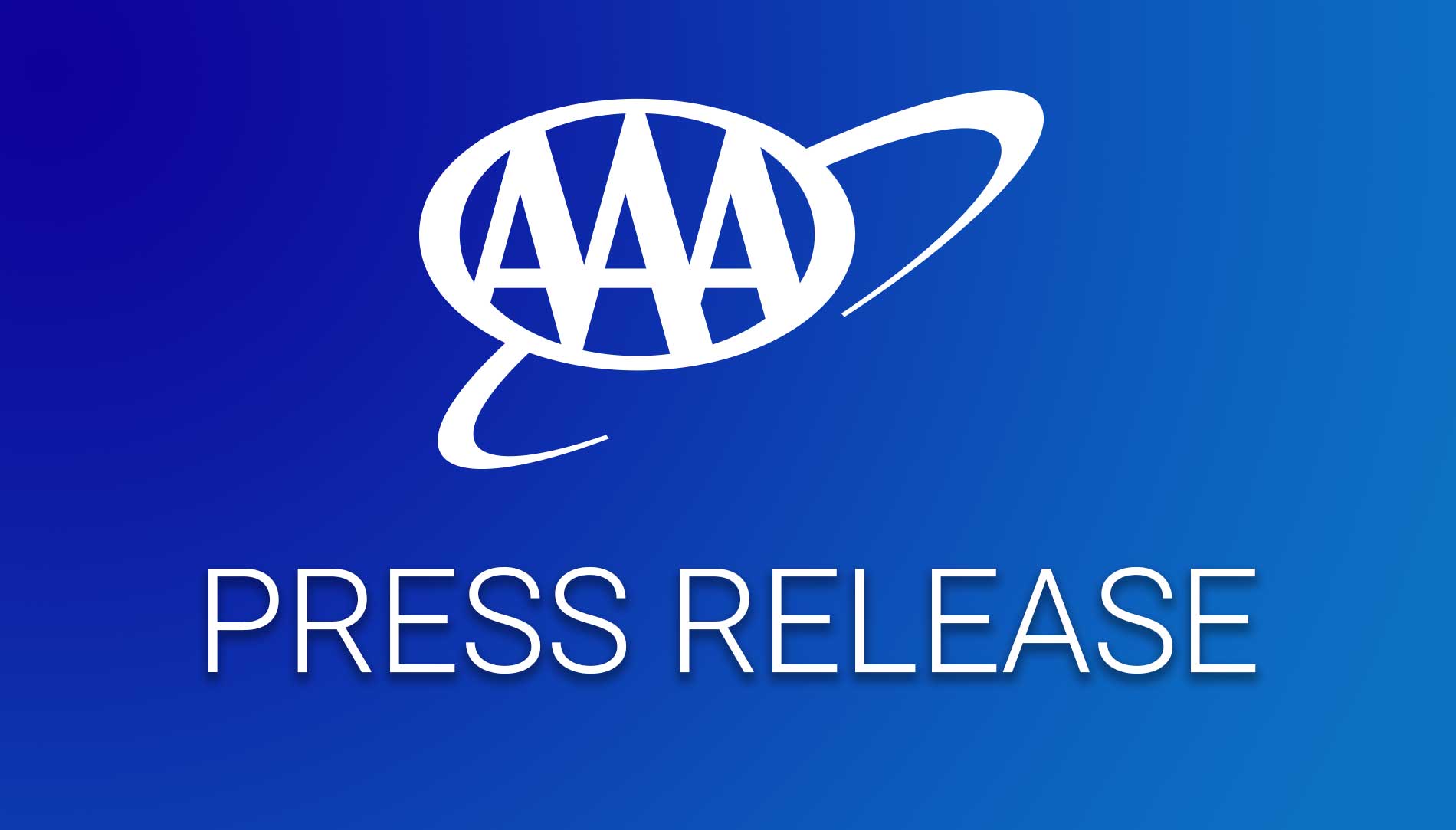AAA expects three-quarters of Americans will stay home; advises caution for those who decide to travel
(Editor’s note: All local data is bold)
BELLEVUE, Wash. — AAA Travel expects the vast majority of Americans to stay home for the Christmas and New Year holidays. Public health concerns and travel guidance are influencing decisions against travel during the 12-day end-of-year stretch that typically sees a high demand for vacations. AAA predicts at least 34 million fewer travelers nationally compared to last year including at least 626,000 fewer Washingtonians.
“While Thanksgiving is traditionally spent gathering with friends and family, the year-end holidays are when Americans often venture out for longer, more elaborate vacations. That will not be the case this year,” said Kelly Just, AAA Washington’s public relations manager. “Public health concerns, official guidance not to travel, and an overall decline in consumer sentiment have encouraged the vast majority of Americans to stay home for the holidays.”
The CDC urges Americans not to travel for the holidays this year to avoid getting or spreading COVID-19. Using late-November forecast models, AAA has projected up to 84.5 million Americans could travel from Dec. 23 through Jan. 3, a 29% drop from 119.3 million in 2019. Of those 84.5 million travelers, AAA anticipates as many as 2.18 million from Washington, a 22% drop from 2.81 million in 2019.
For those who make the personal decision to travel, it is important to understand the risks and take steps to protect yourself and others. A couple of online AAA tools can help you plan a safe journey. The AAA COVID-19 Travel Restrictions Map tracks the latest state and local travel restrictions while TripTik.AAA.com shows which rest stops, gas stations, restaurants and hotels are open along your route.
What to Know Before You Go
- Plan Ahead. Check with state and local officials along your route and at your destination to learn about local guidance and any restrictions that may be in place. This includes what is expected of you when you return home. Many localities are requiring COVID-19 testing prior to and after travel.
- Follow Public Health Guidance.
- The CDC recommends taking a COVID-19 test one to three days before travel and another three to five days after travel, plus reducing nonessential activities for seven days after travel.
- Consistent use of face masks combined with social distancing (at least 6 feet) and regular handwashing are the best ways to lower your risk of contracting COVID-19. Be sure to pack face masks, disinfecting wipes, hand sanitizer and a thermometer to help protect and monitor your health. Also pack water and extra snacks to reduce the need to stop along your trip.
- Verify Before You Go. Call ahead to minimize any last-minute surprises.
- Hotels – Prior to any hotel stay, call ahead to ensure your hotel is open and ask what precautions they are taking to protect guests. Ask about social distancing protocols like capacity reductions in common spaces, hotel staff requirements to wear masks at all times and if all amenities are available, like restaurant dining.
- Car rentals – If renting a car, ask what has been done to clean the vehicle.
Holiday travelers are continuing to take a wait-and-see approach with travel. An expected steady increase of COVID‑19 cases this will likely prompt some Americans to make last minute decisions to abandon upcoming travel plans, a trend observed during the lead up to Thanksgiving.
Based on mid-October travel forecast models, AAA expected up to 50 million people would travel for the Thanksgiving holiday, which would have been a decline of 10% from 2019. While Thanksgiving travel numbers are not yet final, AAA expects the decline to be closer to 15–20%.
Road Trips Will Decline, but Remain Preferred Method of Travel
Most Americans who decide to travel will do so by car, with road trips accounting for 96% of holiday travel. As many as 81 million Americans including up to 2.05 million Washingtonians will travel by car, a decline of at least 25% compared to last year. Auto travel is expected to replace some trips previously taken by bus, train or airplane, given the flexibility, security and comfort traveling by car provides.
| 2020 Year-End Holiday Travelers | |||
| Automobile | Air | Other (Bus, Train, Cruise) | |
| 2020 | 81.1 M | 2.94 M | 480,000 |
| 2019 | 108.0 M | 7.33 M | 3.89 M |
| Change | -24.9% | -59.9% | -87.7% |
For those who decide to hit the road for the year-end holidays, gas prices across the country hover around 50 cents cheaper than this time last year. Today, a gallon of gas in Washington costs an average of $2.75, down 47 cents from 2019; $2.58 in Oregon, a 51-cent drop; $2.25 in Idaho, a decrease of 57 cents.
“Typically, cheaper gas prices are an incentive for last minute trips, especially around the holidays. But the lower prices and less traffic aren’t driving decisions to hit the road. Americans are looking to the public health landscape, including COVID-19 case numbers, to make their travel plans,” said Just.
Whether planning holiday travel by car or a quick trip to the store AAA reminds drivers to ensure their vehicles are ready for the journey, to help avoid a breakdown along the way. AAA expects to rescue more than 905,000 Americans, 6,000 Washingtonians at the roadside this holiday season. The fastest way to request AAA emergency road service is online at AAA.com/roadservice.
Large Declines Expected by Air and Other Modes of Travel
In addition to road trips, up to 2.9 million travelers, 116,000 Washingtonians, are expected to book flights, a decline of nearly 60% from 2019. Air travelers can likely expect to pay lower airfares, as AAA has seen double-digit reductions in average flight costs. AAA reminds air travelers to wear their mask, and wipe down seats, armrests, belt buckles and tray tables using disinfecting wipes, as an extra precaution. Meanwhile, as many as 480,000 Americans, 10,000 Washingtonians, are expected to travel by other modes, including bus and train this holiday season, a sharp decline of 87%.
Methodology:
AAA’s projections are based on economic forecasting and research by IHS Markit, a London-based business information provider. For the purposes of this forecast, the year-end holiday travel period is defined as the period from Wednesday, Dec. 23 to Sunday, Jan. 3, 2021. The 12-day holiday period is the same length as last year. This forecast was finalized during the week of Nov. 23.
About IHS Markit:
IHS Markit (NYSE: INFO) is a world leader in critical information, analytics and solutions for the major industries and markets that drive economies worldwide. The company delivers next-generation information, analytics and solutions to customers in business, finance and government, improving their operational efficiency and providing deep insights that lead to well-informed, confident decisions. IHS Markit has more than 50,000 business and government customers, including 80 percent of the Fortune Global 500 and the world’s leading financial institutions. Headquartered in London, IHS Markit is committed to sustainable, profitable growth.






